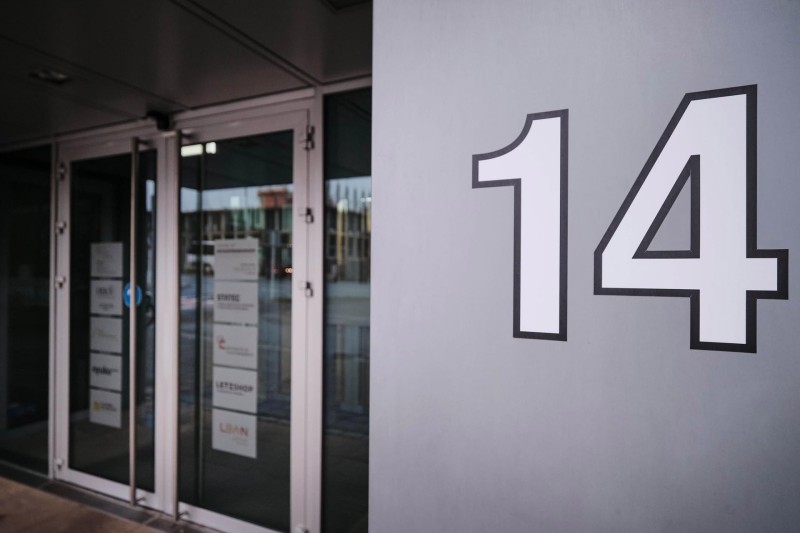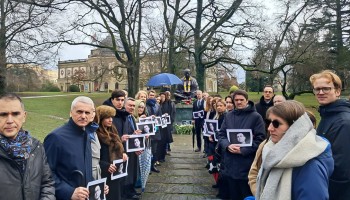On November 22, 2022, the European Court of Justice reversed a decade of progress against financial secrecy, to the cheers of sanctioned oligarchs and tax dodgers all around the world.
In a perverse decision that it claims to be founded in human rights, the court declared invalid the public’s ability to access information on companies’ beneficial owners (the people who own or control them).
With leading European tax havens from Ireland to the Netherlands having already returned the cloak of anonymity to their company registers, E.U. policymakers must deliver an urgent response to this ruling.
The court’s decision rests on the view that allowing the true owners of companies to be publicly known constitutes a serious interference with the rights to respect for private life and the protection of personal data enshrined in the Charter of Fundamental Rights of the European Union. You might guess from this wording that the decision was a major human rights victory that would be celebrated by civil society organizations and the public at large.
You couldn’t be more wrong.
The only people celebrating this decision — outside of newly anonymous oligarchs, tax abusers and criminals — seem to be lawyers, trustees, and other professionals describing themselves as “international tax planning specialists,” “legal advises of high net worth individuals and ultra high net worth individuals,” or “private wealth and tax” experts. In other words, the enablers that help both the rich and criminals, including sanctions-evading oligarchs, to evade the law that applies to everyone else.
Like hackers breaking into a system, lawyers seem in the case to have presented a situation involving an anonymous person, invoking a theoretical risk of being kidnapped while traveling, to convince the E.U. Court of Justice to invalidate public access to a large amount of information without any apparent consideration of the related rights. A theoretical risk for which there is no evidence was able to destroy a major transparency tool that was proven to be effective at tracking assets of sanctioned Russian oligarchs and uncovering money laundering schemes.
Beneficial ownership transparency is one of the few causes that brings together a wide range of stakeholders that usually oppose each other: civil society organizations, financial institutions, journalists, tax authorities, international organizations, financial intelligence units, law enforcement, and private companies involved in compliance.
There is such wide support for transparency on the real owners and controllers of companies because it tackles illicit financial flows of all sorts: money laundering, corruption, conflict of interest, tax evasion, fraud, market rigging, the financing of terrorism and so on.
There are no good reasons, it turns out, to allow people to hide their ownership of the legal vehicles they use to conduct their economic activities. Markets do not work as well if there are unseen monopolies or political conflicts of interest, for example, or if some actors can gain an edge from hidden tax abuse. States work less well when they cannot guarantee a level playing field, or prevent the laundering of the proceeds of crime, or raise the revenues they need to provide the inclusive public services that underpin human rights.
The state, as duty bearer for human rights obligations, should act against these abuses which both corrupt the effective functioning of democratic governance, and undermine the raising of revenues to deliver public benefits. By throwing the cloak of anonymity over E.U. companies, the judgment undermines transparency and accountability, and flies in the face of social justice, which is at the core of human rights.
The judgment also violates another principle of human rights — that of not engaging in policy that results in “retrogression in protection of economic, social, cultural and environmental rights.” This is a serious step backwards. But it appears that the court hasn’t grasped the importance of leaks such as the Panama Papers. Authorities had been able to access information even before the leaks, but it was only after the leaks that the importance of public access became obvious, both to hold authorities to account when they don’t take action, and to have the public assist under-resourced authorities in revealing financial crimes. Online public access is so useful that even competent authorities prefer it over the time-consuming and burdensome official process of requesting information.
The European Court of Justice appears to have fallen for a specious and narrow “human rights” argument that entirely disregards the much broader and weightier human rights damage that this ruling will inflict. The decision has not strengthened the rights of any marginalized group. It has only emboldened enablers to keep promoting and creating secrecy for more individuals and in more countries outside the E.U.
One naïve ruling threatens to destroy years of work and E.U. leadership. Human rights arguments have been distorted to justify the creation of secrecy for the benefit of a few and at the expense of society at large. A direct response from E.U. policymakers is now urgently required.
Andres Knobel is the lead researcher on beneficial ownership at the Tax Justice Network.





